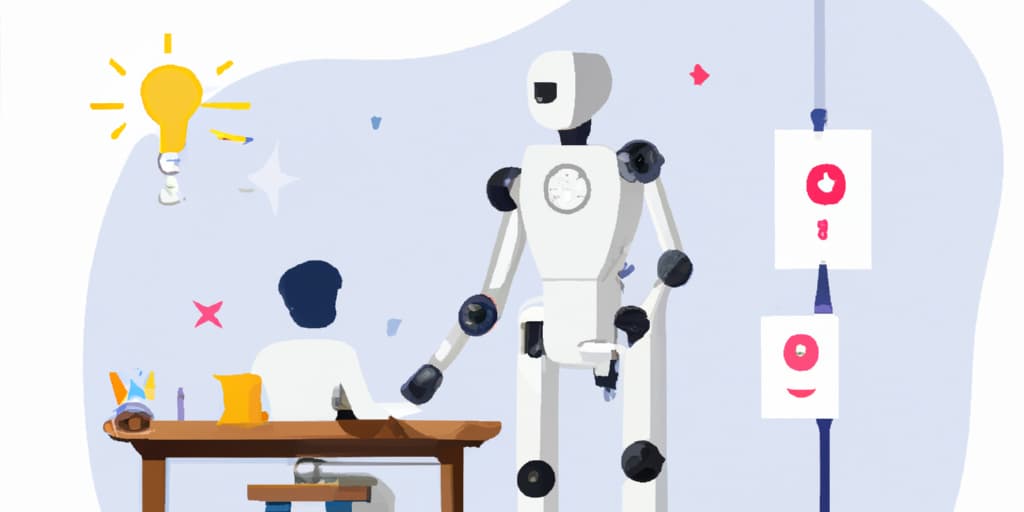The founder of HubSpot’s first partner agency warns that marketing agencies are at serious risk of disruption from AI.
Marketing AI Institute founder/CEO Paul Roetzer used to own HubSpot’s first partner agency, PR 20/20 (now Ready North), before a successful exit.
With 20+ years of agency experience, Paul discusses in Episode 29 of the Marketing AI Show how AI will disrupt key areas of the agency business.
Why It Matters
- The last six weeks have changed the game. In the last six weeks, AI developments, like ChatGPT, have dramatically accelerated the need for agencies to figure out how to adapt to AI. Many agencies are not taking the threat of AI seriously enough. Urgency is critical for agencies to adapt and shift their services and business models.
- Agencies should look at three core areas where AI will have an impact. Agencies need to consider the impact of AI on their billing models, creativity, and talent management.
- Hourly rates leave you vulnerable. Charging hourly rates for creative work may not be viable in the face of AI. How can agencies justify charging the same hourly rate for deliverables when AI tools can now produce these outputs—or augment the production of these outputs—at a fraction of the cost?
- Creative output will change dramatically. It’s no longer valuable to just do basic creative work. Anyone armed with a generative AI tool can now produce professional-grade outputs. Agencies can not continue to charge their current prices for creative work. AI has fundamentally changed the economics of this type of work.
- Agencies must go all-in on developing AI talent. Agencies should think about professional development and hiring in light of AI's impact on the industry. Up-skilling and re-skilling team members will be absolutely necessary.
What to Do About It
“I think agencies are going to be in trouble a lot faster than they believe if they don’t figure this stuff out quickly,” says Roetzer.
The way to do that is by breaking down the services you already offer into a series of repeatable steps, then determining where AI can make those steps smarter—or unnecessary.
One example:
Marketing AI Institute has dramatically slashed the time to create its weekly podcast by following this approach. Today, we use AI to:
- Produce the podcast video and audio.
- Transcribe podcasts automatically.
- Summarize the podcast transcript.
- Repurpose the podcast transcript into several blog posts.
- Repurpose blog posts into dozens of social shares.
- Repurpose video and audio into additional promotional content.
- Edit all content.
- Generate images for the content.
We break up each step of the podcast process into individual operations. Over time, we’ve made each operation more efficient or completely automated with AI.
This illustrates an opportunity and a challenge for agencies:
The opportunity is that you can dramatically increase the efficiency of the internal and external work you already do, using AI.
The challenge is that, in the past, we would have paid an agency thousands of dollars to do all of these things. There’s no longer a need to do so, showing in practice how AI is altering the financial landscape for agencies.
The takeaway is clear: Agencies need to rethink every aspect of their businesses, says Roetzer.
Agencies should develop AI roadmaps to infuse AI into every component of their business such as marketing, sales, and service. They should begin by looking at how AI is affecting—or could affect—their core services, and then work backwards.
They should also focus on creating value in a unique way, possibly by becoming experts in a specific vertical or industry. Or, by looking for AI tools that are being built specifically for their industry or vertical and become value-added resellers for them.
This is all designed to answer the question:
What could your agency look like in three-to-five years if you infused AI into every aspect of your business?
One of the best ways to figure that out is by taking our Piloting AI for Marketers course series, a series of 17 on-demand courses designed as a step-by-step learning journey for marketers and business leaders to increase productivity and performance with artificial intelligence.
The course series contains 7+ hours of learning, dozens of AI use cases and vendors, a collection of templates, course quizzes, a final exam, and a Professional Certificate upon completion.
After taking Piloting AI for Marketers, you’ll:
- Understand how to advance your career and transform your business with AI.
- Have 100+ use cases for AI in marketing—and learn how to identify and prioritize your own use cases.
- Discover 70+ AI vendors across different marketing categories that you can begin piloting today.
Mike Kaput
Mike Kaput is the Chief Content Officer at SmarterX and a leading voice on the application of AI in business. He is the co-author of Marketing Artificial Intelligence and co-host of The Artificial Intelligence Show podcast.



